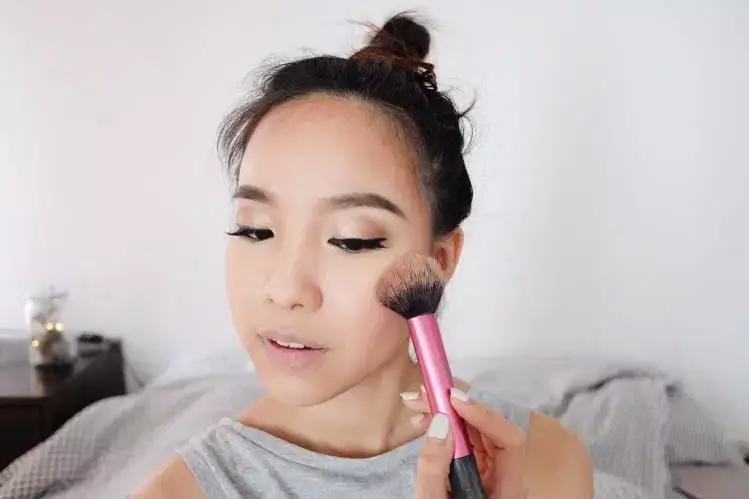When embarking on the incredible journey of pregnancy, women often find themselves navigating a labyrinth of advice on health and wellness. With numerous environmental toxins and harmful chemicals lurking in everyday products, it’s vital to adopt a proactive approach. Here, we present a comprehensive guide highlighting ten critical substances to evade, ensuring a safer experience both when attempting to conceive and throughout pregnancy.
A well-known concern for those focused on wellness, parabens are preservatives frequently used in cosmetics, lotions, and soaps. These chemicals include a variety of forms such as methylparaben and propylparaben. Dr. Aaliya Yaqub, an expert in holistic health, warns that these substances can mimic estrogen in the body, potentially interfering with reproductive health and the quality of eggs. It is advisable for women to eliminate or significantly reduce the use of these products at least six months before trying to conceive. While transitioning away from parabens may lead to shorter shelf life for beauty products, many brands now offer effective alternatives, like Honest Beauty, which uphold standards without these harmful additives.
Moderating Caffeine Intake
The debate surrounding caffeine consumption during pregnancy remains a topic of much research and discussion. Dr. Kimberley A. Thornton, a reproductive endocrinologist, emphasizes the importance of moderation. Current studies suggest that a daily limit of 200 milligrams, roughly equivalent to one eight-ounce cup of coffee, is considered safe. For those who consume higher amounts, a gradual reduction leading up to conception can be beneficial. This not only enhances overall health but may also improve fertility prospects.
Bisphenol A (BPA) is a chemical frequently found in plastic containers and is a significant point of concern, especially in maternal health. Studies indicate that BPA can leach into food and beverages, particularly when containers are subjected to heat. The National Institutes of Health (NIH) suggests alternatives such as glass or stainless steel containers to mitigate BPA exposure. Furthermore, minimizing reliance on canned goods can drastically reduce BPA-related risks. Transitioning back to using dry products, such as beans, is a practical strategy to maintain a healthy diet while avoiding this chemical.
Beware of Retinoids and Retinols
Widely found in anti-aging skincare products, retinoids and retinols are related to vitamin A — a compound that can pose severe risks during the early stages of pregnancy. Experts recommend eliminating these from cosmetic routines in favor of safer options such as glycolic acid and vitamin C, which can nourish skin without the associated dangers of vitamin A derivatives. Taking these precautions is crucial to promoting a safe environment for fetal development.
Smoking poses numerous health risks that extend beyond general health concerns; it impacts fertility and can lead to complications during pregnancy. Dr. Thornton highlights that the toxins present in cigarette smoke contribute to decreased egg quality and an earlier onset of menopause in women. Additionally, smoking during pregnancy has been associated with low birth weights and potential developmental issues in infants. Quitting smoking is an essential step before pregnancy, with resources like the SmokeFree.gov program offering valuable support.
While wanting to maintain personal aesthetics, it is critical to select hair dyes judiciously when attempting to conceive or during pregnancy. Experts recommend using vegetable-based dyes as safer alternatives to chemical formulas that could be absorbed through the scalp. This small shift can reduce unnecessary chemical exposure while still allowing women to feel good about their appearance.
Synthetic fragrances can frequently disrupt hormone levels and contain undisclosed chemicals. As Dr. Yaqub points out, many of these ingredients remain unlisted on product labels. Therefore, during this pivotal time, avoiding synthetic fragrances and opting for unscented products or natural essential oils recommended by healthcare providers can provide peace of mind.
While manicures feel like a well-deserved treat, certain nail polishes can contain harmful chemicals, including formaldehyde and toluene. Instead, consider brands that prioritize natural formulations, such as Zoya or Deborah Lippmann, and choose acetone-free removers to support healthier nail care practices.
Painting and Home Renovation Precautions
Renovating spaces or even doing routine touch-ups can expose pregnant women to risks associated with paints and solvents. Research links exposure to chemicals in spray paints and wall coverings to increased risks of miscarriage and developmental complications. It’s advisable that these tasks are avoided, or at the very least, completed by someone who is not pregnant, ensuring a safer living environment.
Finally, seeking tailored advice from dermatologists or healthcare providers can be invaluable when crafting a skincare routine designed for preconception and pregnancy. They can recommend product modifications that align with individual needs while ensuring safety for both the mother and baby.
While the journey into motherhood is filled with excitement, it also presents numerous areas where caution is warranted. By being informed about harmful chemicals and actively choosing safer alternatives, women can create a nurturing environment that supports their well-being and that of their future child.

